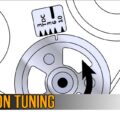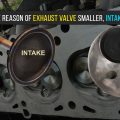We have always heard about two types of engines which dominate the
Automotive market when it comes to internal combustion engines,
Namely: Spark Ignition (S.I) and Compression Ignition (C.I). Homogeneous Charge Compression Ignition (HCCI) engine is a blend of both S.I and C.I engines.
Also, read:
- IC ENGINE: COMPONENTS AND THEIR FUNCTIONS, TYPES, AND TERMINOLOGY
- Inspecting the ignition system
- How a diesel engine works
We all know that air-fuel mixture in an S.I engine is a homogeneous charge
(i.e.) air and gasoline easily mix at room temperature and require a spark plug to be ignited. Diesel, on the other hand, is less volatile and
C. I engine can combust fuel as soon as it reaches the
Autoignition temperature without the help of spark plugs.
HCCI engines burn gasoline under the influence of high temperature and
Pressure during compression. Therefore, HCCI provides us with the best of both worlds.
See More:
Working of HCCI:
The working of HCCI is based on the four-stroke Otto cycle. During the suction stroke,
Gasoline and air mixture is introduced in the combustion chamber.
It is important to keep the air-fuel mixture much leaner to;
Help in the effective combustion process to take place. A conventional S.I engine has a stoichiometric air-fuel ratio of 14.7:1.
But in an HCCI engine, the air-fuel mixture ranges from 24:1 to 31:1
Which makes it easier for the engine to self ignite the charge.
See More:
- Otto cycle and its Processes
- 4 STROKE VS 2 STROKE ENGINES
- EXHAUST SMOKE: TYPES (BLACK, WHITE, AND BLUE) AND CAUSES
Next follows the compression stroke. Unlike a conventional Spark-ignition engine,
HCCI engines usually have a higher compression ratio up to 16:1. This helps in achieving the required temperature and pressure to auto-ignite gasoline.
Just like a conventional C.I engine, the combustion takes place right at the end of the compression stroke in an HCCI engine. The piston then moves from T.D.C to B.D.C to complete a power stroke. Exhaust stroke follows the power stroke. The emissions are much lesser compared to both S.I and C.I engines.
Advantages of HCCI:
- Fuel consumption can be reduced by 15% compared to the Spark-ignition engine.
- Emissions are lower due to lower peak temperatures.
- It can run on gasoline, diesel and other alternative fuels.
Disadvantages of HCCI:
- Higher cylinder pressure can damage the cylinder.
- Auto-ignition can be difficult to control. It can lead to excessive knocking.
- Power generated is less compared to S.I engines.
- Cold starting is difficult without a spark plug.
Don’t miss:




2 Comments